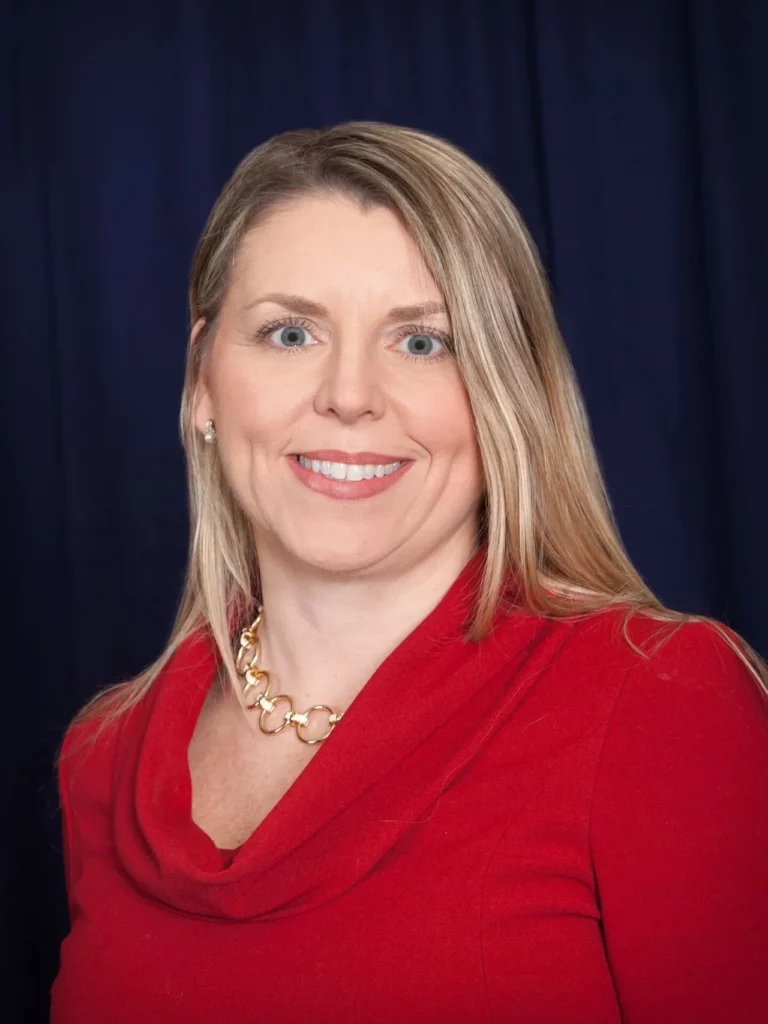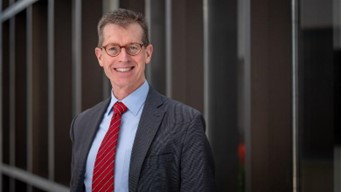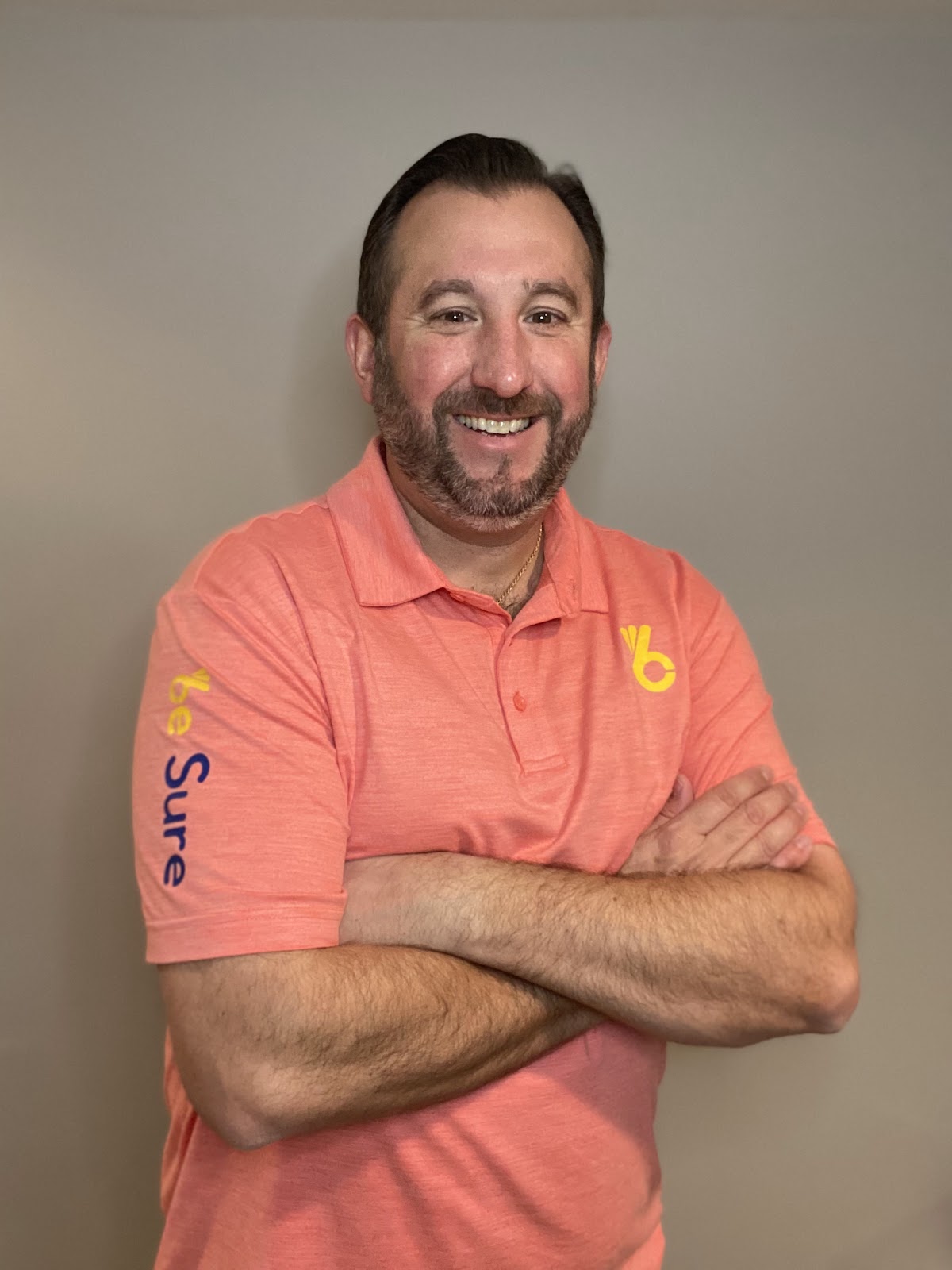Associate Vice President of University Marketing and Communications, Monmouth University
As the President’s Cabinet Member at Monmouth University, Tara Peters oversees the university’s overall marketing and communications strategy to advance the academic mission and goals. Before coming to Monmouth University, Peters served as the Global Vice President of Media Relations for the American Cancer Society. She was responsible for leveraging earned news media outreach in support of the Society’s lifesaving mission. Peters also worked in public affairs for the New Jersey Association of Mental Health & Addiction Agencies and agency advertising with Farago + Partners in New York. Known for her quick analysis and decisive style, Peters is a results-driven staff leader responsible for designing and implementing award-winning communications and marketing programs.
If you had to write a book about yourself, what would be the story, and what would be the title? And why?
The title of the book would be “Mission Driven.” I am connecting this more to my professional life than my personal life. However, when you have a purpose-driven or a mission-driven career, it certainly bleeds over into your personal life as well. I think something that has followed me in my personal life and professional life is just a sense of determination. Even when someone tells me I can’t do something, or there’s some obstacle in my way, I am determined to find the solution around that. And that determination comes with the connection and commitment to the cause – be it nonprofit work or the public health sector, and now with higher education.
The conventional idea is “you are a marketer, and your job is to sell.” And I am not too fond of this notion of selling. Instead, I chose to think about it in terms of changing behavior and what kind of behavior I want to change. And I am determined to change behavior about things that would make people’s lives better. Moreover, everything I have been part of so far in my career, lessons that I have learned along the way – everything has been extraordinary and mission-driven. That’s why, I think, if I am to write a book about myself, the title would be – “Mission Driven.”
Tell us something about your professional journey.
I headed a Communication and Marketing team for over a decade at the American Cancer Society before making a transition to Monmouth University. When I started working with Monmouth University in 2015, we had many trade articles suggesting higher education is the new white space for marketers. And it was valid at the time, and I think, to some extent, it continues to be accurate even today. In many ways, this industry is still immature in the marketing space.
At that time, I thought coming from nonprofit healthcare into higher education would be an easy transition. I would not call it easy because nothing is easy. But I thought the change would not be difficult. But transition was not as I had expected. For example, I was used to a system where the CEO would say, “this is the direction we are going to,” and everybody would follow the direction. In academia, it is different. We have a system of shared governance, and we have experts with different perspectives. Because of these perspectives brought to the table by these scholarly experts in related areas, there are several learning opportunities. And such an environment has broadened my horizons. I have learned more here at Monmouth University than at any other job because of these diverse perspectives that I’ve been able to enjoy, consume, share and converse.
Why did you get involved with the AMA-New Jersey chapter? Why is this organization important to you?
While working with the American Cancer Society, I had a global purview. I did a lot of both national and global work and networking. American Cancer Society is a community-based organization, and so I had community-based work as well. However, after – I would say Superstorm Sandy – I felt like I was missing a connection to the local community. You know, give back on a local level to families and communities. And for me to do this job, I needed to connect with local marketers. That’s when AMA-New Jersey came into play. To build a network at a local level, I started participating in AMA conferences. Those are great avenues to connect with people locally. It filled the void, and that was something that I needed to succeed in my career.
I have also participated in AMA national events – for example, AMA Symposium for the Marketing of Higher Education. That is usually in November. That’s a great conference. And you know you find these great vendors too. I am not sure if people go to conferences to find vendors – I mean- the speakers are undoubtedly good. But I have made excellent professional connections with vendors too.
What is the best advice you would give to new professionals in your industry?
This is an excellent area for young people because they are digital natives. The social media aspect of higher education marketing is exploding. I would encourage young professionals to understand techniques to connect with prospects and build brand value through social media. Because – think about it – it’s a more youthful demographic that we are targeting. We are connecting with their lives on social media. They are often not consuming news in the traditional ways. For example, I have a high school senior and even as a parent, I spent more time investigating schools via social media than I spent time on their website. And I looked at third-party validators. Traditionally, folks look at the website as a kind – like the front door or the front porch at the very least. The website is where you find all the details. But when it comes to continuous engagement, social media piece is critical.
It is also about how thoughtful you are about shaping your brand on social media so they understand who you are and think about whether or not they fit in. It is all about ‘fit‘ when it comes to colleges. The extent to which you can be authentic about your brand on social media would help students figure out whether that is the place they want to spend the next few years.
Besides, there is much pressure with social media internally. We have several departments and events. And you might be asked to post something on social media. However, it would be best if you were mindful of the audience’s experience that you have built over the years. For example, there are other ways to announce your events. We put events in our story. So you have to be strategic about how you are posting as well.
Lastly, in an academic setting, different units – academic departments or administrative units – also want to have a social presence. These units often don’t have the staffing that has the time or the experience to do this well. And if you’re not going to do it well or do it consistently, you probably shouldn’t be doing it. At the very least, share content that you are sending out on the main channels.
If someone wants to connect with you, what is the best way to reach out to you on social media? Yes, LinkedIn will be the best option, and you can reach me at https://www.linkedin.com/in/tara-peters-m-a-3732823/



